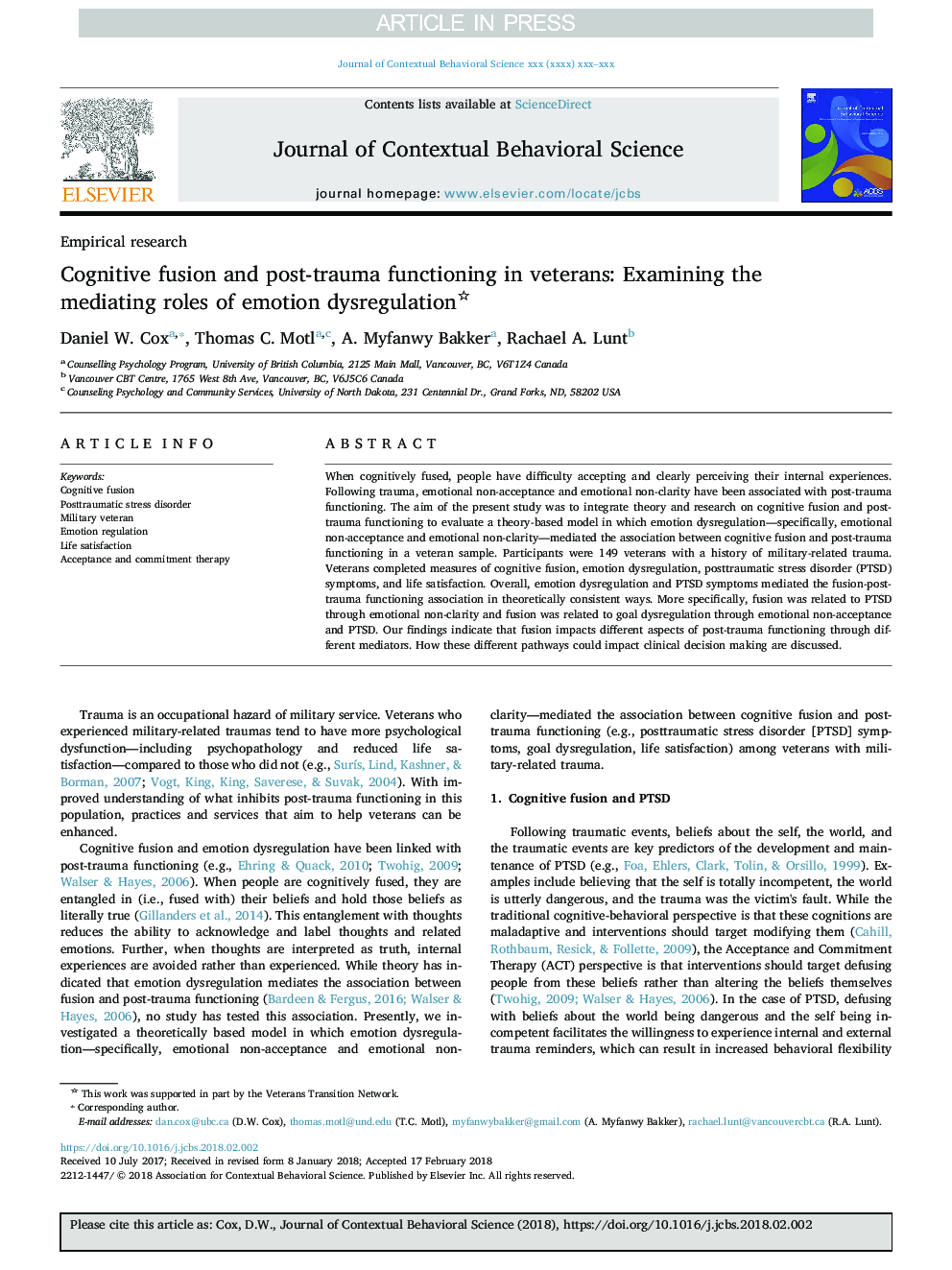| Article ID | Journal | Published Year | Pages | File Type |
|---|---|---|---|---|
| 7268237 | Journal of Contextual Behavioral Science | 2018 | 7 Pages |
Abstract
When cognitively fused, people have difficulty accepting and clearly perceiving their internal experiences. Following trauma, emotional non-acceptance and emotional non-clarity have been associated with post-trauma functioning. The aim of the present study was to integrate theory and research on cognitive fusion and post-trauma functioning to evaluate a theory-based model in which emotion dysregulation-specifically, emotional non-acceptance and emotional non-clarity-mediated the association between cognitive fusion and post-trauma functioning in a veteran sample. Participants were 149 veterans with a history of military-related trauma. Veterans completed measures of cognitive fusion, emotion dysregulation, posttraumatic stress disorder (PTSD) symptoms, and life satisfaction. Overall, emotion dysregulation and PTSD symptoms mediated the fusion-post-trauma functioning association in theoretically consistent ways. More specifically, fusion was related to PTSD through emotional non-clarity and fusion was related to goal dysregulation through emotional non-acceptance and PTSD. Our findings indicate that fusion impacts different aspects of post-trauma functioning through different mediators. How these different pathways could impact clinical decision making are discussed.
Keywords
Related Topics
Health Sciences
Medicine and Dentistry
Psychiatry and Mental Health
Authors
Daniel W. Cox, Thomas C. Motl, A. Myfanwy Bakker, Rachael A. Lunt,
